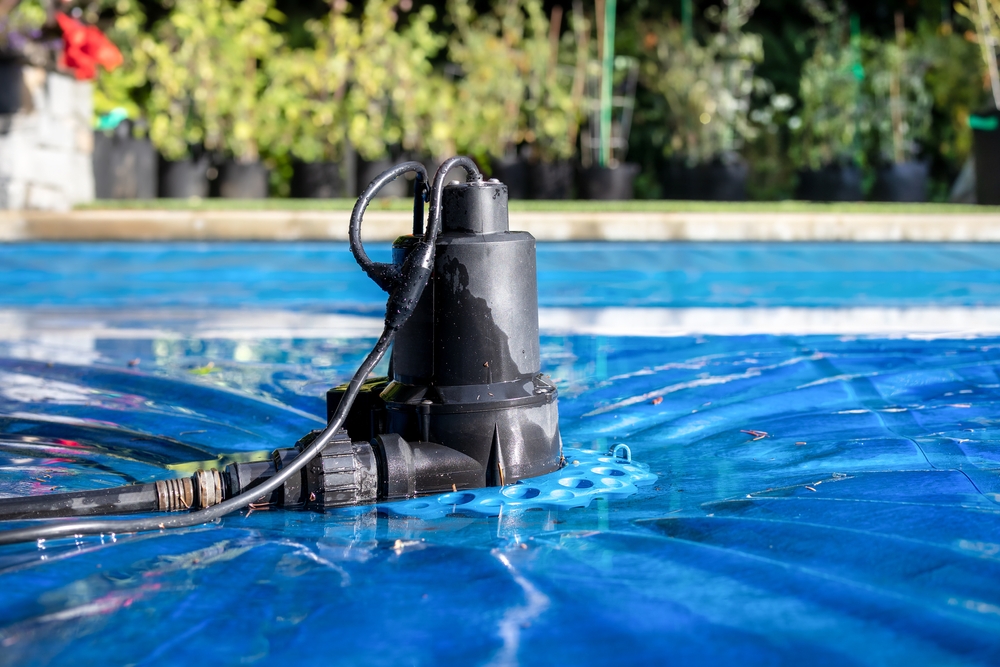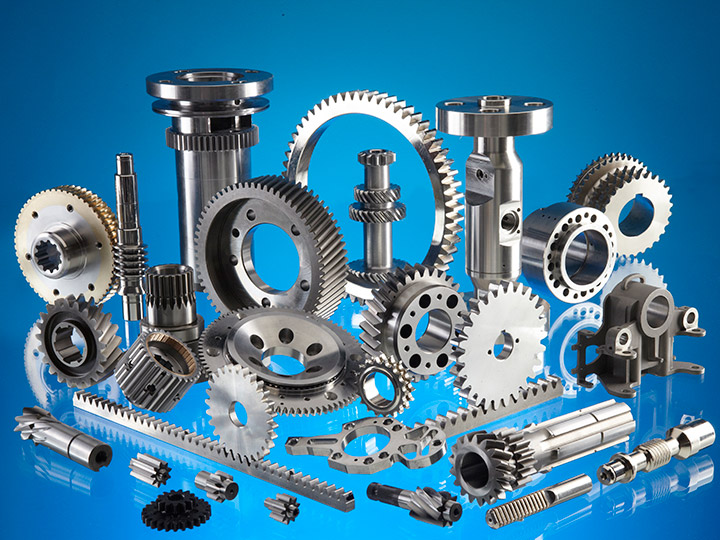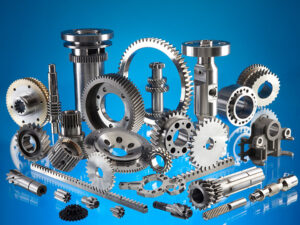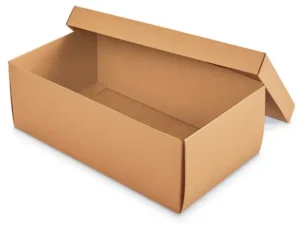What Are the Most Common Types of Pool Pumps and Their Uses?
It’s a scorching summer day and your family is excited to jump in the pool. But when you step outside, you notice the water looks murky, and debris is floating around. The excitement fades as you realize your pool pump isn’t doing its job. Frustrated, you think about changing it but aren’t sure what type of pump to get.
That evening, a friend with an immaculately maintained pool visits and suggests, “Have you considered a variable-speed pump?” It saves energy while keeping the water crystal clear. You are interested in the concept and start looking into various pump options and how they can make pool maintenance easier.
In this blog, we will look at the most common types of pool pumps and how they work. And if you’re ready to upgrade your equipment, we’ll help you find the best options from swimming pool equipment suppliers in UAE, so you can enjoy a clean and refreshing pool all summer long.
What Are Single-Speed Pool Pumps and When Should You Use Them?
Single-speed pool pumps are the most traditional type of pool pumps, operating at a fixed speed to circulate pool water. They are typically the most affordable option but are also the least energy-efficient. Due to their constant high-speed operation, they consume more electricity compared to other pump types.
Uses:
- Ideal for smaller pools or those with straightforward circulation needs.
- Suitable for budget-conscious pool owners who prioritize upfront costs over long-term energy savings.
Pros:
- Lower initial cost.
- Simple on/off switch for easy operating.
Cons:
- Higher energy use results in higher utility bills.
- Louder operation due to running at a constant high speed.
How Do Dual-Speed Pool Pumps Improve Efficiency?
Dual-speed pool pumps offer both high and low-speed settings, allowing more control over the pool’s circulation process. The low-speed setting is used for standard filtration and water circulation, while the high-speed setting is reserved for tasks that require more power, such as operating a pool cleaner.
Uses:
- Suitable for medium-sized pools that benefit from adjustable flow rates.
- Ideal for those who want a balance between cost and efficiency.
Pros:
- More energy-efficient than single-speed pumps when operated on the low-speed setting.
- Flexible operation with adjustable speeds for different tasks.
Cons:
- More expensive initially than single-speed pumps.
- Still less efficient than variable-speed pumps on lower settings.
What Are Variable-Speed Pool Pumps, and Why Are They Popular?
Variable-speed pool pumps are the most energy-efficient option, featuring adjustable speeds that can be fine-tuned to match the specific needs of your pool. They use a permanent magnet motor, similar to those found in electric cars, which makes them significantly quieter and more efficient.
Uses:
- Ideal for pools of all sizes, especially larger pools with complex features like waterfalls, spas, or fountains.
- Perfect for those trying to reduce their energy expenses and environmental effect.
Pros:
- Up to 90% more energy-efficient than single-speed pumps.
- Longer lifespan and quieter operation due to the advanced motor design.
- Potential for energy subsidies and incentives.
Cons:
- Higher initial cost, but over time the energy savings could make up for it.
How Do Booster Pumps Enhance Pool Cleaning Efficiency?
Booster pumps are not designed to circulate pool water but rather to provide additional power to pool cleaners that require high-pressure water flow. They work alongside your primary pool pump, enhancing the cleaning performance of pressure-side pool cleaners.
Uses:
- Best for pools that use pressure-side cleaners needing a boost in water pressure.
- Perfect for large pools or those with lots of trash.
Pros:
- Significantly improves the efficiency of pressure-side cleaners.
- Helps maintain a cleaner pool with less manual effort.
Cons:
- Adds extra cost due to needing an additional pump alongside the primary one.
- Increased energy usage since it runs separately from the main pump.
What Are Variable Flow Pool Pumps, and How Do They Differ from Variable-Speed Pumps?
Variable flow pool pumps automatically adjust their speed to maintain a set flow rate, regardless of changes in pool conditions. This technology ensures consistent filtration and heating performance without manual adjustments, making it a step beyond variable-speed pumps in terms of automation.
Uses:
- Suitable for pools with fluctuating demands, such as those with multiple water features or varying user loads.
- Great for high-end residential or commercial pools that require precise flow management.
Pros:
- Maximizes efficiency by delivering only the necessary flow rate at any given time.
- Increased system longevity and reduced energy usage.
Cons:
- Higher cost due to advanced technology and automation features.
Are Solar Pool Pumps a Good Choice for Eco-Friendly Pool Owners?
Solar pool pumps are powered by solar energy, making them an environmentally friendly option. They use solar panels to generate electricity, which powers the pump, reducing reliance on conventional energy sources and lowering overall utility costs.
Uses:
- Ideal for eco-conscious pool owners looking to minimize their carbon footprint.
- Best suited for regions with ample sunlight, ensuring consistent pump operation.
Pros:
- Reduces electricity bills through the efficient application of solar energy.
- Quiet and low-maintenance operation.
Cons:
- The high initial cost of installation and solar panel systems.
- Performance can be inconsistent during cloudy or rainy weather.
How Do Self-Priming Pool Pumps Work?
Self-priming pool pumps are designed to handle situations where the pump sits above the water level, such as in above-ground pool setups. These pumps can remove air from their system and start operating without manual priming, making them user-friendly and efficient.
Uses:
- Ideal for above-ground pools, spas, or pools with elevated pump locations.
- Suitable for pool owners who prefer minimal maintenance and hassle-free operation.
Pros:
- Easy to start and operate without needing manual priming.
- Reliable performance even when installed above the water level.
Cons:
- Generally more expensive than non-self-priming pumps.
- May have limited efficiency compared to variable-speed options.
How Do You Choose the Best Swimming Pool Pump for Your Pool?
Selecting the right pool pump involves considering various factors such as pool size, usage, energy efficiency, and budget. Here are some tips:
- Pool Size: Larger pools may require a more powerful pump or a dual-speed/variable-speed pump for efficient water circulation. Proper sizing ensures adequate water flow and helps to maintain water clarity and proper chemical distribution, which is crucial for a healthy swimming environment.
- Energy Efficiency: Consider investing in a variable-speed or variable-flow pump if long-term energy savings are a priority. These pumps adjust their speed based on the pool’s needs, reducing energy consumption and lowering utility bills, which can be a significant benefit over time.
- Features and Accessories: If your pool has additional features like waterfalls, spas, or automatic cleaners, ensure your pump can handle the extra load. A pump that supports these features will ensure optimal performance and efficiency, enhancing your overall pool experience.
- Budget: While variable-speed pumps offer the best efficiency, single-speed pumps are more budget-friendly upfront. Balancing initial costs with potential long-term savings can help you make an informed decision that fits both your financial and functional needs. Investing in the right pump will contribute to the longevity and enjoyment of your pool.
Consulting with swimming pool pump suppliers in Dubai can help you find the best pump that meets your pool’s specific needs.
Why Is It Important to Maintain Your Pool Pump Regularly?
Regular maintenance of your pool pump is essential for ensuring its longevity and optimal performance. Here’s what you should do:
- Regular Inspection: Check for any leaks, cracks, or unusual noises. Early detection of issues can prevent more significant problems and costly repairs, ensuring your pump runs smoothly and effectively.
- Cleaning the Pump Basket: Regularly clean out the pump basket to prevent debris from clogging the system. A clean pump basket helps maintain proper water flow, reduces strain on the pump, and enhances overall efficiency.
- Monitor Pressure Gauges: Keep an eye on pressure gauges to ensure the pump is operating efficiently. Monitoring pressure helps identify potential issues such as blockages or wear and tear, allowing for timely adjustments or repairs.
- Professional Servicing: Have your pump serviced by a professional annually, especially if you have a more complex system like a variable-speed pump. Professional servicing ensures that all components are functioning correctly, extends the life of your pump, and helps maintain peak performance throughout the year.
What Are the Signs That Your Pool Pump Needs Replacement?
Even with regular maintenance, there comes a time when your pool pump may need to be replaced. Look out for these signs:
- Increased Noise: If your pump becomes unusually loud, it may indicate a failing motor or internal components. Persistent noise not only disrupts your pool experience but can also signal underlying mechanical issues that might worsen over time.
- Poor Circulation: Reduced water flow or difficulty in maintaining water clarity could mean your pump is struggling. Inefficient circulation can lead to algae growth and decreased water quality, impacting the overall enjoyment of your pool.
- Frequent Breakdowns: If your pump frequently requires repairs, it may be more cost-effective to replace it. Ongoing repairs can add up, and a new pump might offer better reliability and performance, saving you time and money in the long run.
- Age: Most pool pumps last around 8-10 years; if your pump is older, consider upgrading to a more efficient model. Newer pumps are often more energy-efficient and come with advanced features that enhance performance and reduce operating costs.
Where Can You Find the Best Swimming Pool Pump Suppliers in Dubai?
Finding a reliable supplier is crucial for getting the best pool pump for your needs. Swimming pool pump suppliers in Dubai offer a variety of pumps suitable for different pool sizes and uses, along with expert guidance to help you make the right choice. Look for suppliers with a strong reputation, comprehensive product ranges, and excellent customer support to ensure you receive both quality equipment and service.
Comparison Table: Types of Pool Pumps
| Feature | Single-Speed | Dual-Speed | Variable-Speed | Booster Pumps |
| Energy Efficiency | Low | Moderate | High | N/A |
| Initial Cost | Low | Moderate | High | Moderate |
| Noise Level | High | Moderate | Low | Varies |
| Ideal Use | Basic circulation | Moderate-sized pools | All pool types | Enhancing cleaners |
| Maintenance | Moderate | Moderate | Low | Moderate |
Final Thoughts
Choosing the right pool pump is extremely important for keeping a clean and efficient swimming pool. With options ranging from single-speed to variable-speed pumps, each has unique advantages and applications. Understanding the many types of pool pumps and working with reliable swimming pool equipment suppliers in UAE can help you discover the ideal pump for your needs, to ensure optimal pool performance and energy efficiency. Remember, using the correct pump not only enhances the efficiency of your pool but also leads to long-term savings and more enjoyment.
Discover more interesting blogs on our site













Post Comment